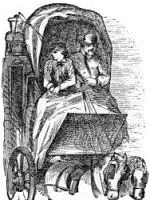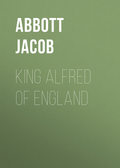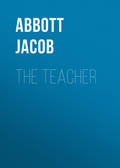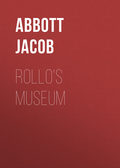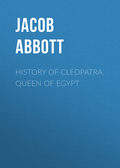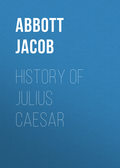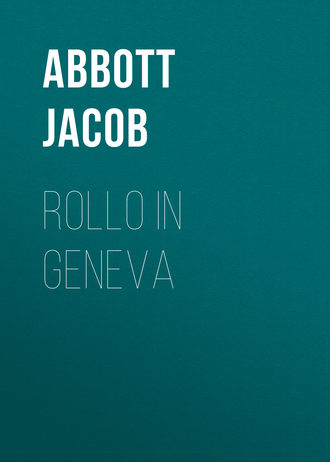
Abbott Jacob
Rollo in Geneva
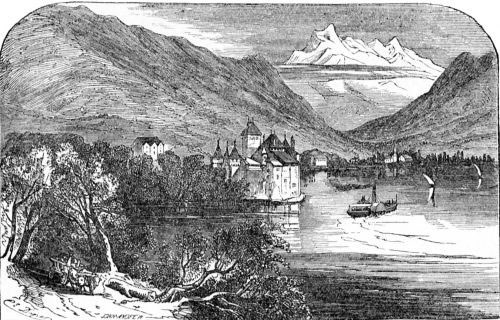
THE CASTLE OF CHILLON.
PRINCIPAL PERSONS OF THE STORY
Rollo; twelve years of age.
Mr. and Mrs. Holiday; Rollo's father and mother, travelling in Europe.
Thanny; Rollo's younger brother.
Jane; Rollo's cousin, adopted by Mr. and Mrs. Holiday.
Mr. George; a young gentleman, Rollo's uncle.
Chapter I.
The Fame of Geneva
Geneva is one of the most remarkable and most celebrated cities in Europe. It derives its celebrity, however, not so much from its size, or from the magnificence of its edifices, as from the peculiar beauty of its situation, and from the circumstances of its history.
Geneva is situated upon the confines of France, Switzerland, and Sardinia, at the outlet of the Lake of Geneva, which is perhaps the most beautiful, and certainly the most celebrated, lake in Switzerland. It is shaped like a crescent,—that is, like the new moon, or rather like the moon after it is about four or five days old. The lower end of the lake—that is, the end where Geneva is situated—lies in a comparatively open country, though vast ranges of lofty mountains, some of them covered with perpetual snow, are to be seen in the distance all around. All the country near, however, at this end of the lake, is gently undulating, and it is extremely fertile and beautiful. There are a great many elegant country seats along the shore of the lake, and on the banks of the River Rhone, which flows out of it. The waters of the lake at this end, and of the river which issues from it, are very clear, and of a deep and beautiful blue color. This blue color is so remarkable that it attracts the attention of every one who looks down into it from a bridge or from a boat, and there have been a great many suppositions and speculations made in respect to the cause of it; but I believe that, after all, nobody has yet been able to find out what the cause is.
The city of Geneva is situated exactly at the lower end of the lake, that is, at the western end; and the River Rhone, in coming out of the lake, flows directly through the town.
The lake is about fifty miles long, and the eastern end of it runs far in among the mountains. These mountains are very dark and sombre, and their sides rise so precipitously from the margin of the water that in many places there is scarcely room for a road along the shore. Indeed, you go generally to that end of the lake in a steamer; and as you advance, the mountains seem to shut you in completely at the end of the lake. But when you get near to the end, you see a narrow valley opening before you, with high mountains on either hand, and the River Rhone flowing very swiftly between green and beautiful banks in the middle of it. Besides the river, there is a magnificent road to be seen running along this valley. This is the great high road leading from France into Italy; and it has been known and travelled as such ever since the days of the old Romans.
The River Rhone, where it flows into the lake at the eastern end of it, is very thick and turbid, being formed from torrents coming down the mountain sides, or from muddy streams derived from the melting of the glaciers. At the western end, on the other hand, where it issues from the lake, the water is beautifully pellucid and clear. The reason of this is, that during its slow passage through the lake it has had time to settle. The impurities which the torrents bring down into it from the mountains all subside to the bottom of the lake, and are left there, and thus the water comes out at the lower end quite clear. The lake itself, however, is of course gradually filling up by means of this process.
There are several large and handsome houses on the northern shore of the lake; but Geneva, at the western end of it, entirely surpasses them all.
Geneva is, however, after all, a comparatively small town. It contains only thirty or forty thousand inhabitants. It would take ten Genevas to make a New York, and nearly a hundred to make a Paris or London.
Why, then, since Geneva is comparatively so small, is it so celebrated? Almost every person who goes to Europe visits Geneva, and talks of Geneva when he comes back; while there are multitudes of other cities and towns, many times as large in extent and population, that he never thinks of or speaks of at all.
There are several reasons for this.
1. The first reason is, that this town stands on the great high road leading from England and France into Italy. Of course it comes naturally in the way of all travellers making the grand tour. It is true that at the present day, since steam has been introduced upon the Mediterranean, a very large proportion of travellers, instead of passing through Switzerland, go down the Rhone to Marseilles, and embark there. But before the introduction of steam, for many ages, the way by Geneva was almost the only way to Italy; and the city acquired great celebrity through the accounts of tourists and travellers who visited it on their journeys.
2. The second reason is, that Geneva is a convenient and agreeable point for entering Switzerland, and for making excursions among the Alps. There are two great avenues into Switzerland from France and Germany—one by way of Geneva, and the other by way of Basle. By the way of Basle we go to the Jungfrau and the Oberland Alps which lie around that mountain, and to the beautiful lakes of Zurich and of Lucerne. All these lie in the eastern part of the Alpine region. By the way of Geneva we go to the valley of Chamouni and Mont Blanc, and visit the vast glaciers and the stupendous mountain scenery that lie around this great monarch of the Alps.
There is a great question among travellers which of these two Alpine regions is the most grand. Some prefer the mountains about Mont Blanc, which are called the Alps of Savoy. Others like better those about the Jungfrau, which are called the Oberland Alps. The scenery and the objects of interest are very different in the two localities; and it seems to me that any difference which travellers may observe in the grandeur of the emotions which they severally produce upon the mind must be due to the peculiar circumstances or moods of mind in which they are visited. It is true you can get nearer to the Jungfrau than you can to Mont Blanc, and so can obtain a more impressive view of his icy and rocky sides and glittering summit. But then, on the other hand, Mont Blanc is really the highest peak, and is looked upon as the great monarch of them all.
And here, as the name of Mont Blanc will of course often appear in this volume, I have a word or two to say in respect to the proper pronunciation of it in America; for the proper mode of pronouncing the name of any place is not fixed, as many persons think, but varies with the language which you are using in speaking of it. Thus the name of the capital of France, when we are in France, and speaking French, is pronounced Par-ree; but when we are in England and America, and are speaking English, we universally pronounce it Par-is. It is so with almost all names of places. They change the pronunciation, and often the mode of spelling, according to the analogy of the language used by the person speaking of them.
Many persons suppose that in order correctly to pronounce the name of any place we must pronounce it as the people do who live in and around the place. But this is not so. The rule, on the other hand, is, that we must pronounce it as the people do who live in and around the place the language of which we are speaking. Thus the people of France call their capital Par-ree; those of Spain call theirs something like this,—Madhreedth; the Italians pronounce theirs Roma; but we, in talking English, say simply, Paris, Madrid, and Rome; in other words, when we are talking English, we talk English throughout, using English words for names of things, and English pronunciation for names of places, in all cases where there is an English pronunciation established,—as there is in respect to all the rivers, towns, mountains, and other localities on the globe that are well known and often spoken of in the English world.
Mont Blanc is one of these. Like the word Paris it has its French pronunciation for the French, and its English pronunciation for the English; and its English pronunciation is as if it were spelled Mount Blank or Mont Blank. Under this name it has been known and spoken of familiarly all over England and America for centuries; and this, it seems to me, is the proper name to give it when we are speaking English.
Its French pronunciation is very different. It is one which none but a practical French scholar can possibly imitate, except in a very awkward manner. Those who have visited France and Switzerland, and have been accustomed to the French sound, often give the word the French pronunciation; but it is not at all necessary to do so. The word, like Paris, has its own established English sound; and if it is not pedantry to attempt to give it the French sound when speaking English, it certainly is not a mispronunciation to give it the English one. Indeed, to require the French pronunciation of the word from English speakers would be in effect to banish it almost altogether from conversation; for among the ten millions, more or less, in England or America, who speak English well, there is probably not one in a thousand that can possibly give the word its true French pronunciation.
In reading this book, therefore, and in speaking of the great Swiss mountain, you are perfectly safe in giving it its plain English sound, as if it were written Mont Blank; and remember the principle, as applicable to all other similar cases. Wherever a foreign name has become so familiar to the English world as to have obtained an established English pronunciation, in speaking English we give it that pronunciation, without any regard to the usage of the people who live on the spot.
But now I must return to Geneva, and give some further account of the reasons why it has been so celebrated.
3. The third reason why Geneva has acquired so much celebrity among mankind is the great number of learned and distinguished philosophers and scholars that have from time to time lived there. Switzerland is a republic, and the canton of Geneva is Protestant; and thus the place has served as a sort of resort and refuge for all the most distinguished foes both of spiritual and political tyranny that have risen up in Europe at intervals during the last five hundred years. Geneva was indeed one of the chief centres of the Reformation; and almost all the great reformers visited it and wrote about it, and thus made all the world familiar with it, during the exciting times in which they lived.
Besides this, Geneva has been made the residence and home of a great many moral and political writers within the last one or two centuries; for the country, being republican, is much more open and free than most of the other countries of Europe. Men who have incurred the displeasure of their own governments by their writings or their acts find a safe asylum in Geneva, where they can think and say what they please. All this has tended very strongly to attract the attention of mankind to Geneva, as to a sort of luminous point in respect to moral and political science, from which light radiates to every part of the civilized world.
4. There is one more reason, very different from the preceding, which tends to make Geneva famous, and to draw travellers to visit it at the present day; and that is, it is a great manufacturing place for watches and jewelry—one of the greatest, indeed, in the world. Travellers, in making the tour of Europe,—and American travellers in particular,—always wish to bring home with them a great number and variety of purchases; and the things that they buy they very naturally desire to buy at the places where they are made. It is not merely that they hope to get them better and cheaper there, but it is a pleasant thought to be associated always afterwards with any object of use or luxury that we possess, that we bought it ourselves at the place of its original manufacture. Thus the gentlemen who travel in Europe like to bring home a fowling-piece from Birmingham, a telescope from London, or a painting from Italy; and the ladies, in planning their tour, wish it to include Brussels or Valenciennes for laces, and Geneva for a watch.
Thus, for one reason or another, immense numbers of people go every year to Geneva, in the course of the tour they make in Europe, either for business or pleasure. It is estimated that the number of these visitors annually is not less than thirty thousand; and the chief streets and quays of the town are marked almost as strikingly by the conspicuousness and splendor of the hotels as Broadway in New York.
The place of departure in France for Geneva is Lyons. If you look upon the map you will see the situation of Lyons on the River Rhone, almost opposite to Geneva. There is a railroad from Paris to Lyons, and so on down the Rhone to Marseilles. But from Lyons up to Geneva—which is likewise situated on the Rhone, at the place where it issues from the Lake of Geneva—there was no railroad at the time of Rollo's visit, though there was one in the process of construction. The party were obliged to travel by diligence on that part of the journey. The diligence is the French stage coach. The diligence leaves Lyons in the evening, and travels all night. As Mr. Holiday arrived at Lyons the evening before, Rollo had the whole of the day to walk about the town before setting out for his evening ride. His father gave him leave to go out alone, and ramble where he pleased.
"The most curious places," said his father, "are on the other side of the river, where the silk weavers live. Notice what bridge you go over, so that you will know it again, and then if you get lost on the other side it will be no matter. All you will have to do is to keep coming down hill till you reach the river, and then look up and down till you see the bridge where you went over. That will bring you home. And be sure to be at home by five o'clock. We are going to have dinner at half past five."
"Then won't it be in season," asked Rollo, "if I am at home by half past five?"
"In season for what?" asked his father.
"Why, to save my dinner," said Rollo.
"Yes," said his father; "it might be in season to save your dinner, but that is not what I am planning to save. I have no particular uneasiness about your dinner."
"Why, father!" said Rollo, surprised.
"I have no wish to have you go hungry," replied his father; "but then if by any chance you happened to be late at dinner, it would be of no great consequence, for you could buy something, and eat it in the diligence by the way. So I was not planning to save your dinner."
"Then what were you planning to save, father?" asked Rollo.
"My own and mother's quiet of mind," replied Mr. Holiday, "especially mother's. If five minutes of the dinner hour were to come and you should not appear, she would begin to be uneasy; and indeed so should I. In such cases as this, children ought always to come before the time when their parents would begin to feel any uneasiness respecting them."
Rollo saw at once the correctness of this principle, and he secretly resolved that he would be at home a quarter before five.
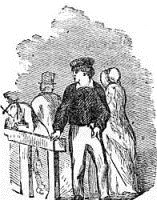
Chapter II.
Planning
"What part of the diligence are we going to ride in, father?" asked Rollo, as they were seated at dinner.
"In the coupé,"1 said Mr. Holiday.
"Ah, father!" said Rollo; "I wish you would go on the banquette. We can see so much better on the banquette."
"It would be rather hard climbing for mother," said Mr. Holiday, "to get up to the banquette—such a long ladder."
"O, mother can get up just as easily as not," said Rollo. "Couldn't you, mother?"
"I am more afraid about getting down than getting up," said his mother.
"But it is a great deal pleasanter on the banquette," said Rollo. "They keep talking all the time—the conductor, and the drivers, and the other passengers that are there; while in the coupé we shall be all by ourselves. Besides, it is so much cheaper."
"It is cheaper, I know," said Mr. Holiday; "but then as to the talking, I think we shall want to be quiet, and go to sleep if we can. You see it will be night."
"Yes, father, that is true," said Rollo; "but I had rather hear them talk. I can understand almost all they say. And then I like to see them change horses, and to see the conductor climb up and down. Then, besides, at almost all the villages they have parcels to leave at the inns; and it is good fun to see them take the parcels out and toss them down, and tell the bar maid at the inn what she is to do with them."
"All that must be very amusing," said Mr. Holiday; "but it would not be so comfortable for your mother to mount up there. Besides, I have engaged our places already in the coupé, and paid for them."
"Why, father!" said Rollo. "When did you do it?"
"I sent last evening," said Mr. Holiday. "It is necessary to engage the places beforehand at this season. There is so much travelling into Switzerland now that the diligences are all full. I had to send to three offices before I could get places."
"Are there three offices?" asked Rollo.
"Yes," said his father; "there are three different lines.
"But I'll tell you what you may do, Rollo, if you please," continued his father. "You may go to the bureau,2 and see if you can exchange your seat in the coupé for one in the banquette, if you think you would like better to ride there. There may be some passenger who could not get a place in the coupé, on account of my having taken them all, and who, consequently, took one on the banquette, and would now be glad to exchange, and pay the difference."
"How much would the difference be?" asked Rollo.
"I don't know," said Mr. Holiday; "five or six francs, probably. You would save that sum by riding on the banquette, and you could have it to buy something with in Geneva."
"Well, sir," said Rollo, joyfully, "I should like that plan very much."
"But do you think," said Mrs. Holiday, "that you know French enough to explain it at the bureau, and make the change?"
"O, yes, mother," said Rollo; "I have no doubt I can."
So Rollo said he would finish his dinner as soon as he could, and go off at once to the bureau.
"There is one other condition," said his father. "If I let you ride on the banquette, and let you have all the money that you save for your own, you must write a full account of your night's journey, and send it to your cousin Lucy."
"Well, sir," said Rollo, "I will."
Rollo left the dinner table while his father and mother were taking their coffee. The table was one of a number of separate tables arranged along by the windows on the front side of a quaint and queer-looking dining room—or salle à manger, as they call it—in one of the Lyons inns. Indeed, the whole inn was very quaint and queer, with its old stone staircases, and long corridors leading to the various apartments, and its antique ceiling,—reminding one, as Mr. Holiday said, of the inns we read of in Don Quixote and other ancient romances.
Rollo left his father and mother at this table, taking their coffee, and sallied forth to find his way to the bureau of the diligence.
"If you meet with any difficulty," said Mr. Holiday, as Rollo went away, "engage the first cab you see, and the cabman will take you directly there for a franc or so."
"Yes, sir," said Rollo, "I will."
"And if you don't find any cab readily," continued his father, "engage a commissioner to go with you and show you the way."
"Yes, sir," said Rollo.
A commissioner is a sort of porter who stands at the corners of the streets in the French towns, ready to do any thing for any body that calls upon him.
Rollo resolved not to employ either a cabman or a commissioner, if it could possibly be avoided. He took the address of the bureau from his father, and sallied forth.
He first went round the corner to a bookstore where he recollected to have seen a map of Lyons hanging in the window. He looked at this map, and found the street on it where he wished to go. He then studied out the course which he was to take. Lyons stands at, or rather near, the confluence of the two rivers Rhone and Saone. In coming to Lyons from Paris, the party had come down the valley of the Saone; but now they were to leave this valley, and follow up that of the Rhone to Geneva, which is situated, as has already been said, on the Rhone, at the point where that river issues from the Lake of Geneva.
The hotel where Rollo's father had taken lodgings was near the Saone; and Rollo found that the bureau was on the other side of the town, where it fronts on the Rhone.
So Rollo followed the course which he had marked out for himself on the map. In a short time he saw before him signs of bridges and a river.
"Ah," says he to himself; "I am right; I am coming to the Rhone."
He went on, drawing nearer and nearer. At length he came out upon the broad and beautiful quay, with large and elegant stone buildings on one side of it, and a broad but low parapet wall on the other, separating the quay from the water. There was a sidewalk along this wall, with many people walking on it; and here and there men were to be seen leaning upon the wall, and looking over at the boats on the river. The river was broad, and it flowed very rapidly, as almost all water does which has just come from Switzerland and the Alps. On looking up and down, Rollo saw a great number of bridges crossing this stream, with teams and diligences, and in one place a long troop of soldiers passing over. On the other side, the bank was lined with massive blocks of stone buildings. In a word, the whole scene presented a very bright and animated spectacle to view.
Nearly opposite to the place where Rollo came out upon the river, he saw, over the parapet wall that extended along on the outer side of the quay, a very large, square net suspended in the air. It was hung by means of ropes at the four corners, which met in a point above, whence a larger rope went up to a pulley which was attached to the end of a spar that projected from the stern of a boat. The net was slowly descending into the water when Rollo first caught a view of it; so he ran across, and looked over the parapet to see.
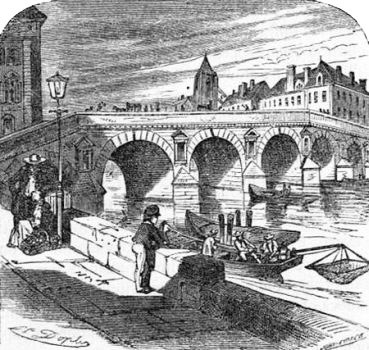
THE GREAT NET.
The net descended slowly into the water. It was let down by men in the boat paying out the line that held it.
"Ah," said Rollo to himself; "that's a curious way to rig a net. I should like to stay and see them pull it up again, so as to see how many fish they take; but business first and pleasure afterwards is the rule."
So he left the parapet, and walked along the quay towards the place where the bureau was situated.
"I'll come back here," said he to himself, "when I have got my place on the banquette, and see them fish a little while, if I find there is time."
In a few minutes Rollo came to the place he was seeking. It was in a little square, called Concert Place, opening towards the river. Rollo knew the bureau by seeing the diligence standing before the door. It had been brought up there to be ready for the baggage, though the horses were not yet harnessed to it.
Rollo went into the office. He found himself in a small room, with trunks and baggage arranged along on one side of it, and a little enclosure of railings, with a desk behind it, on the other. There was a young man sitting at this desk, writing.
"This must be a clerk, I suppose," said Rollo to himself.
Opposite to where the clerk was sitting there was a little opening in the railings, for people to pay their money and take their tickets; for people take tickets for places in the diligence, in Europe, just as they do for the railroad. Rollo advanced to this opening, and, looking through it, he stated his case to the clerk. He said that he had a place in the coupé that his father had taken for him, but that he would rather ride on the banquette, if there was room there, and if any body would take his place in the coupé.
The clerk said that there had been a great many persons after a place in the coupé since it had been taken, and that one lady had taken a place on the banquette, because all the other places in the coach had been engaged.
"I think," said the clerk, "that she will be very glad to exchange with you, and pay you the difference. She lives not far from here, and if you will wait a few minutes, I will send and see."
So the clerk called a commissioner who stood at the door, and after giving him his directions, sent him away. In a few minutes the commissioner returned, saying that the lady was very glad indeed to exchange. He brought in his hand a five franc piece and three francs, which was the difference in the price of the two places. The clerk gave this money to Rollo, and altered the entry on his books so as to put the lady in the coupé and Rollo on the banquette. Thus the affair was all arranged.
Rollo found that it was now six o'clock. The diligence was not to set out until half past seven; but by the rules of the service the passengers were all to be on the spot, with their baggage, half an hour before the time; so that Rollo knew that his father and mother would be there at seven.
"That gives me just an hour," said he to himself; "so I shall have plenty of time to go and see how they manage fishing with that big net."
He accordingly went to see the fishing, but was very careful to return some minutes before the appointed time.
Rollo had a very pleasant ride that night to Geneva. He wrote a long and full account of it afterwards, and sent it to his cousin Lucy. This letter I shall give in the next chapter.
The reason why Rollo wrote so long an account of his journey was this: that his father required him, when travelling, to spend one hour and a half every day in study of some kind; and writing letters, or any other intellectual occupation that was calculated to advance his education, was considered as study. In consequence of this arrangement, Rollo was never in a hurry to come to the end of his letters, for he liked the work of writing them better than writing French exercises, or working on arithmetic, or engaging in any of the other avocations which devolved upon him when he had no letters on hand.
